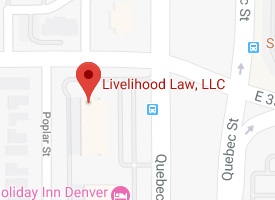
Equal Pay New Business Launch Plan Concept
Does Pay Transparency in Colorado Work?
How many times have you heard that women make less money than men? It seems like an easy problem to fix today. We have laws requiring that employers pay men and women the same amount for the same work. So, shouldn’t the law have fixed this problem by now? While we’ve had state and federal laws prohibiting pay discrimination for decades, they’ve been largely ineffective at closing the gender pay gap. Women still make 82 cents for every dollar a man makes, with Latina women earning around 55 cents and Black women earning 63 cents for every white man’s dollar.
It turns out that pay disparities can become baked into our current system of recruiting and hiring. When an employer makes a new hire, they often require that workers disclose their previous salary and benefits. They then base their compensation and benefits on the worker’s salary history rather than what they’ve paid their employees in the past. In this way, women, particularly women of color, can find it difficult to “close the gap” by looking for a job elsewhere.
What Is the Colorado Equal Pay for Equal Work Statute?
In response to these systemic problems with pay disparity, the Colorado legislature acted, passing the Colorado Equal Pay for Equal Work (CEPEWA) statute. The law works to keep the hiring process transparent and tackle gender pay disparities. With the passage of CEPEWA, employers must now meet certain record-keeping and job posting requirements.
- Pay Equality: As part of the legislation, employers must pay the same amount for the same work, regardless of gender. There are only six exemptions for employers, and the company must show that it reasonably relied on this exemption and prove that this stated reason accounts for the pay disparity. CEPEWA also prohibits pay disparity based on sex plus another protected status. So, employers may not pay a black woman less for a job than they pay a white woman.
- Transparency in Job Postings: When companies in Colorado seek to make a new hire, they must also advertise the job opening among their employees, allowing current employees to seek a promotion or pay raise.
- Pay Transparency: Colorado employers must now include a salary or pay range with job postings.
- Wage Disputes: CEPEWA now sends wage disputes directly to the courts rather than through the Colorado Department of Labor and Employment. Employers in Colorado must also keep more detailed pay records; if they fail to do so, the court can instruct the jury that the violation of the law wasn’t in good faith. This helps remedy the power imbalance between employer and employee regarding historical data about an employer’s hiring and salary practices.
Is Colorado’s Pay Transparency Law Working?
While implementing the law may have had some hiccups, it appears that equal pay for equal work is helping to increase pay transparency. Colorado magazine 5280 reports that when the CDLE began issuing compliance letters to companies excluding Colorado workers from remote job postings and explaining the law, nearly 90% pledged to update their postings to comply. Some companies have gone even further. Ibotta, maker of a mobile shopping rebate app, pledged to make all their job postings transparent, even outside Colorado. Other states have followed Colorado’s lead, with pay transparency legislation introduced in New York, Connecticut, Rhode Island, Nevada, and Washington.
Livelihood Law Can Help
If you suspect your employer is violating CEPEWA, we can help you consider your options. Livelihood Law has helped many people in your situation remedy pay violations and wage disputes.


